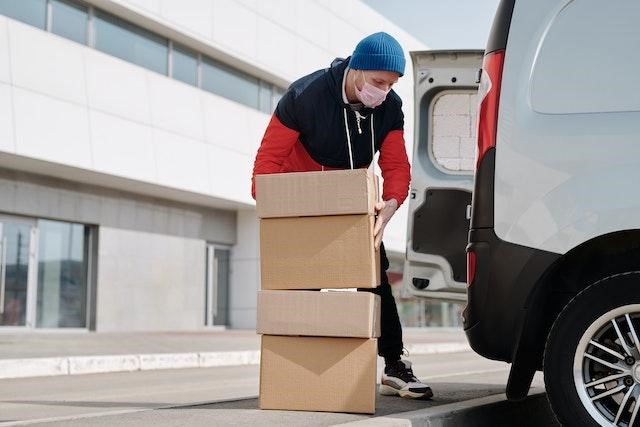If your business handles or sells high-value items, such as art, antiques, jewelry, collectibles, bullion, coins, instruments, expensive equipment, or even large amounts of cash, shipping such items carefully and keeping them safe in transit is going to be a top priority.
You need to know how to ensure goods arrive at their destination safely and avoid having to make insurance claims on lost or damaged items. Read on for tips on shipping high-value pieces effectively to or from your business this year and beyond.
Choose the Right Packaging
For starters, you must carefully package valuable goods to help protect them while in transit. Many items get jostled and impacted in the back of vans, trucks, or elsewhere, so you need to help ensure that high-cost items, in particular, don’t get destroyed along the way. You could protect pieces with bubble wrap, packing peanuts, foam sheets, crumpled packing paper, or other handy materials and then secure them inside boxes or crates made from steel, aluminum, or wood, for instance.
You may need to ensure that your high-value items are kept within a specific temperature range, too, to avoid spoilage or other types of damage. If so, you might want to use cold chain technologies or heat packs and the like to keep the temperature consistent. Plus, label sensitive or breakable parcels with “Fragile” tape or stickers, and purchase helpful temperature indicators that will alert shippers and handlers when parcels are getting close to being too hot, cold, or humid. Also, if you need potentially hazardous items shipped, investing in shock indicators to place on parcels is worthwhile.
Choose Reputable, Reliable Logistics Companies When Outsourcing the Task
You’re likely to outsource the shipment of your valuable goods to a specialist logistics firm or perhaps even multiple ones. When doing so, you must select reputable, reliable companies that have been in the business for a long time and are known for taking security and delivery timeframes very seriously. They should also be focused on moving items with care and continually looking for ways to minimize parcel delays, losses, theft, and related issues.
While you might be looking for the most affordable solutions, in the long run, it’s often worth paying a bit more to go with a more trustworthy transporter than a newer, unproven one. Check out online reviews of companies on your shortlist to see who gets the best feedback on their services, and ask plenty of questions of shippers, so you feel comfortable choosing the best fit for your needs. For instance, find out what their customer service is like, if shipments include insurance, if they have any delivery guarantees, and what updates they provide when goods are in transit.
Hire Security for Extra Protection
You may want to go a little further for your most valuable items by hiring security to provide personalized protection for goods while they’re in transit. Security guards can be with the pieces from when they leave your business premises to when they arrive at their destination, ensuring that nothing untoward happens along the way.
When choosing which security firms to hire, ensure those you’re considering have up-to-date licenses, the guards are fully qualified and experienced, and the proper background checks have been completed by the security employers or by yourself for the individual guards who will be keeping your items safe.
Invest in Adequate Insurance
While you can take numerous steps to keep your valuable products safe and sound when they’re being shipped, the reality is that you can’t make them 100 percent invulnerable to something negative happening. As a result, ensure you have enough insurance to cover any potential losses or damage if the worst happens. It’s always better to be safe than sorry and pay a little extra for cover just in case you need it.
You may think that insurance is covered by the courier companies or other logistics firms you hire, but remember that they often only provide minimum compensation for loss or damage. You will likely need to take out your own additional insurance on precious, high-value items that can’t be replaced and that aren’t fully covered by any built-in insurance options.
It’s best to opt for insurance that covers against a wide variety of issues, such as theft, loss, collisions during transit, natural disasters, deliberate destruction, etc.
Follow all the above tips, and you will help yourself have less stress when valuable items are being moved from point to point and protect your business from potential losses and corresponding customer dissatisfaction.
